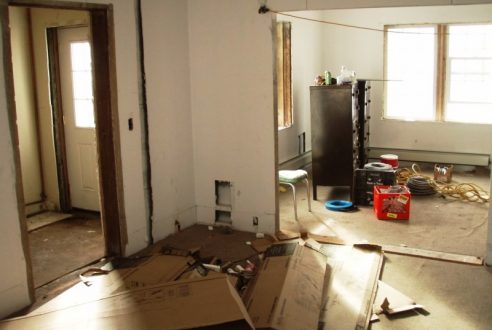Last week, I was surfing on the net when I saw a question on Quora that piqued my interest and it goes as follows: “Can a Muslim landlord charge a higher rent to a Christian?”
In a straightforward reply, the answer is no. But, it’s important to learn about religious discrimination in housing, especially if you are in the real estate industry.
Religious Discrimination in Housing
 In microeconomics, there is something called price discrimination and it refers to a pricing technique that charges customers different prices for the same goods based on what the seller thinks the customer will agree to pay. Religious discrimination in housing is quite similar in the sense that landlords treat renters differently based on their religious beliefs. In other words, discrimination includes refusing to rent or charging a higher rent to someone only because of his or her religion. It might also include offering to rent the house on different terms and conditions based on the person’s religion.
In microeconomics, there is something called price discrimination and it refers to a pricing technique that charges customers different prices for the same goods based on what the seller thinks the customer will agree to pay. Religious discrimination in housing is quite similar in the sense that landlords treat renters differently based on their religious beliefs. In other words, discrimination includes refusing to rent or charging a higher rent to someone only because of his or her religion. It might also include offering to rent the house on different terms and conditions based on the person’s religion.
Religion is a particular system of faith and worship that also includes a particular dress code and religious clothing was often found to be the main cause of religious discrimination in housing. For instance, several cases have been reported where landlords refused to rent their properties to Sikhs who wear turbans or women who wear hijabs.
Research further shows that out of all major religious groups, Muslims are more likely to suffer from housing discrimination. Since the tragic events of 9/11, the Muslim community has unfortunately been subjected to a distressing pattern of discrimination, prejudice, stereotypes, and exclusion. These deeply ingrained biases have permeated various aspects of society, including the housing sector. Muslims, as a result, have often found themselves as the unfortunate victims of religious discrimination when it comes to securing housing. The pervasive stigmatization and negative portrayal of Muslims have fueled biased attitudes and unfounded fears, leading to unfair treatment in housing matters. Muslims have encountered countless challenges, ranging from landlords denying them rental opportunities based solely on their religious affiliation to facing hostile and unwelcoming environments within neighborhoods. Such discriminatory practices not only violate the principles of equality and fair housing but also inflict emotional and psychological harm on individuals and families seeking peaceful and secure housing.
Religious discrimination in housing violates fundamental principles of equality and freedom of religion, denying individuals the right to find suitable and affordable housing regardless of their faith. The urgent need for widespread education, awareness, and advocacy cannot be overstated in order to eradicate religious discrimination and create a more inclusive and tolerant society where every individual, regardless of their faith, can find and enjoy safe and equitable housing opportunities.
Can A Landlord Ask A Tenant About His/Her Religion?
 The question of whether a landlord can ask a tenant about his/her religion is a complex issue that involves considerations of privacy, fair housing laws, and individual rights. In many jurisdictions, landlords are prohibited from asking tenants about their religious beliefs or any other protected characteristics during the rental application process or throughout the tenancy. This is because such inquiries can potentially lead to discrimination and bias in housing decisions.
The question of whether a landlord can ask a tenant about his/her religion is a complex issue that involves considerations of privacy, fair housing laws, and individual rights. In many jurisdictions, landlords are prohibited from asking tenants about their religious beliefs or any other protected characteristics during the rental application process or throughout the tenancy. This is because such inquiries can potentially lead to discrimination and bias in housing decisions.
Fair housing laws aim to ensure equal treatment and prohibit discrimination based on various protected categories, including religion. Landlords are generally required to evaluate tenants based on their financial qualifications, rental history, and other objective criteria that are directly relevant to their ability to fulfill the terms of the lease. Inquiring about a tenant’s religion could be seen as a violation of these laws, as it opens the door for potential religious discrimination in the rental process.
There may be limited exceptions to this general rule, such as religious organizations providing housing exclusively for members of their faith. However, even in such cases, there are often legal restrictions and guidelines in place to ensure that discrimination does not occur based on religious beliefs.
It is important for landlords to familiarize themselves with the fair housing laws specific to their jurisdiction to understand their obligations and responsibilities. By focusing on objective and relevant criteria when evaluating prospective tenants, landlords can contribute to a fair and inclusive rental process that respects individuals’ privacy and upholds their rights to non-discrimination.



